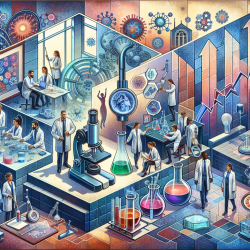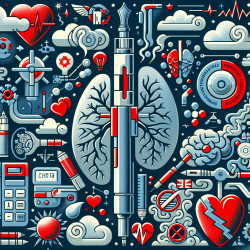In the ever-evolving field of laboratory medicine, staying updated with the latest educational and training models is crucial for practitioners aiming to enhance their skills and professional qualifications. A recent research article titled "Current Pre- and Post-Graduate Vocational Education and Training in Laboratory Medicine and Microbiology in Poland" sheds light on the structured approach Poland has adopted to train laboratory diagnosticians effectively. This blog post explores the key outcomes of this research and how practitioners can leverage these insights to improve their skills or delve into further research.
The Polish Model of Laboratory Medicine Education
The Polish education system for laboratory medicine is a well-organized structure that integrates both pre-graduate and post-graduate training. This model ensures that graduates are well-prepared to meet the demands of medical laboratories. The system is designed to provide comprehensive education through a combination of theoretical knowledge and practical skills.
- Pre-Graduate Education: Since 1975, Poland has maintained a separate education system for laboratory medicine at the Medical Analytics Faculty in Medical Universities. This program equips students with a master's degree in medical analytics (laboratory medicine), preparing them for various roles within medical laboratories.
- Post-Graduate Training: Graduates from fields such as biology, chemistry, pharmacy, microbiology, and veterinary medicine undergo additional training to acquire the necessary qualifications for laboratory work. This involves a structured curriculum focused on pathology, internal medicine, hematology, immunology, and clinical chemistry.
Specialization and Professional Development
Poland's model emphasizes continuous professional development through specialization programs. After completing entry-level education, clinical chemists can choose to specialize in specific areas of laboratory medicine by undertaking internships and advanced courses.
- Internships: These include basic internships lasting 3-4 years in medical laboratories and specialized internships aligned with hospital wards such as hematology or cardiology.
- National Exams: A final exam at the national level evaluates the proficiency of specialists, qualifying them to lead medical diagnostic laboratories.
This structured pathway not only enhances professional qualifications but also ensures that practitioners are equipped with advanced knowledge in various areas of laboratory medicine. It prepares them to collaborate effectively with other health professionals and participate in medical research.
The Role of Professional Associations
The National Chamber of Laboratory Diagnosticians (NCLD) plays a pivotal role in regulating the profession in Poland. It oversees the registration process and ensures compliance with a code of conduct similar to that adopted by the European Register of specialists in clinical chemistry and laboratory medicine.
- E-Learning Initiatives: The NCLD has developed an e-network connecting all medical laboratories across Poland, offering e-learning resources to support ongoing education.
- Collaboration with EFCC: In partnership with the European Federation of Clinical Chemistry (EFCC), NCLD continuously updates educational programs to align with European standards.
Opportunities for Further Research
The insights from Poland's training model offer valuable lessons for practitioners worldwide. By exploring this model further, researchers can identify best practices that could be adapted or implemented in other regions. Additionally, understanding the challenges faced by Polish laboratories—such as legal and financial constraints—can inspire innovative solutions to improve vocational training globally.
To read the original research paper, please follow this link: Current Pre- and Post-Graduate Vocational Education and Training in Laboratory Medicine and Microbiology in Poland.










